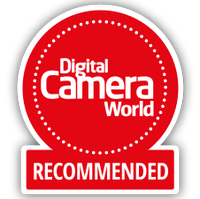Digital Camera World Verdict
One of the best camera systems on the market, with good looks, excellent video quality, and a solid deterrent effect from the spotlights. Arlo’s hub is good, too, and opens up wide compatibility, though you’re still likely to end up paying a subscription for the AI advantage. The only real complaint is the curious selection of mounting options.
Pros
- +
4K HDR video with color night vision
- +
Works with Apple HomeKit as well as Alexa, Google Assistant, etc.
- +
8-megapixel image sensor
- +
Two-way talk and noise-canceling mic
- +
Up to 6 months charge per camera
- +
Cameras can be charged in-situ
Cons
- -
Mustn’t lose charging cable
- -
Only one of each type of wall mount
- -
Hub needs an Ethernet socket on your router/switch
- -
Larger homes might need additional hubs
Why you can trust Digital Camera World
Wi-Fi and always-on internet has heralded a marked change in the best outdoor security devices. There is no need for cables to the cameras if they can hold their own power, and no need for a recording device if suitable cloud alternatives can be provided. For a subscription fee, of course.
Significant players in the market are owned by major players in the smart assistant world: Ring (Amazon/Alexa), Blink (Amazon), and Nest (Google). These firms have the additional incentive to guide people toward their platform.
Arlo is also a significant brand in the market and has navigated their own path. With this set, they support not only Alexa, and Google Assistant but even the oft-ignored Apple Homekit platform. At the same time, they push the resolution higher than usual. This doesn’t come cheap, so the question is whether you’re still getting a better deal, either used alone or with any of the assistants mentioned.
Specifications
Camera Resolution: 4K
Image Sensor: 8MP
Field of View: 180˚
Night Vision: Yes, Color
Connectivity: Wi-Fi 2.4 & 5 GHz
Local storage: Yes, SD card in base station
Camera dimensions: 89 x 52 x 78mm
Hub dimensions: 135 x 50 x 151mm
Key Features
While the stand-out feature of these cameras might be the 4K resolution, they also boast HDR and 400-lumen white LED lights (the ‘Spotlight’) to provide color night vision. There is magnetic charging, and wireless communication with a hub and the cameras are weather resistant so can safely be mounted outdoors. The Arlo app offers extensive control, especially with the optional cloud service which unlocks AI to distinguish between animals, people, vehicles, and packages and limit your alerts as you choose.
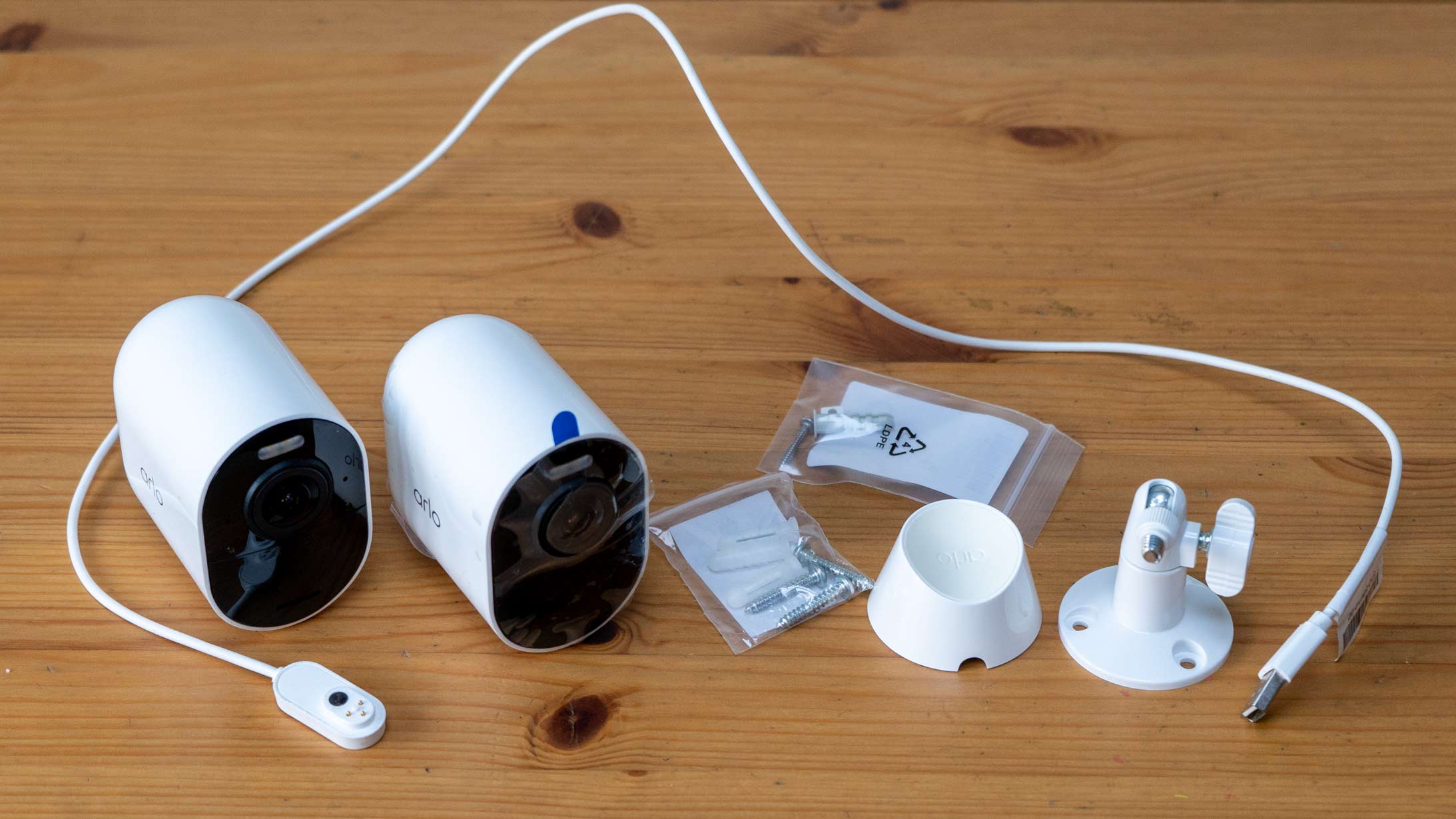
Build and handling
The chic-but obvious styling will come as no surprise to Arlo devotees – nor will it displease Apple fans (especially of the gloss-white era). A risk with creating good-looking cameras is that they don’t end up looking like a deterrent, but the Ultra 2 Outdoor cameras are still clearly bullet-shaped cameras, albeit better looking than most.
Where the design really impresses is the battery concealment. Press a button on the base, next to some mag-safe like contacts, and the camera simply falls out of its white case, allowing access to the battery compartment. Charging, however, can be achieved using Arlo’s own magnetic mount (the other end of the single included cable is USB-A and a transformer is included).
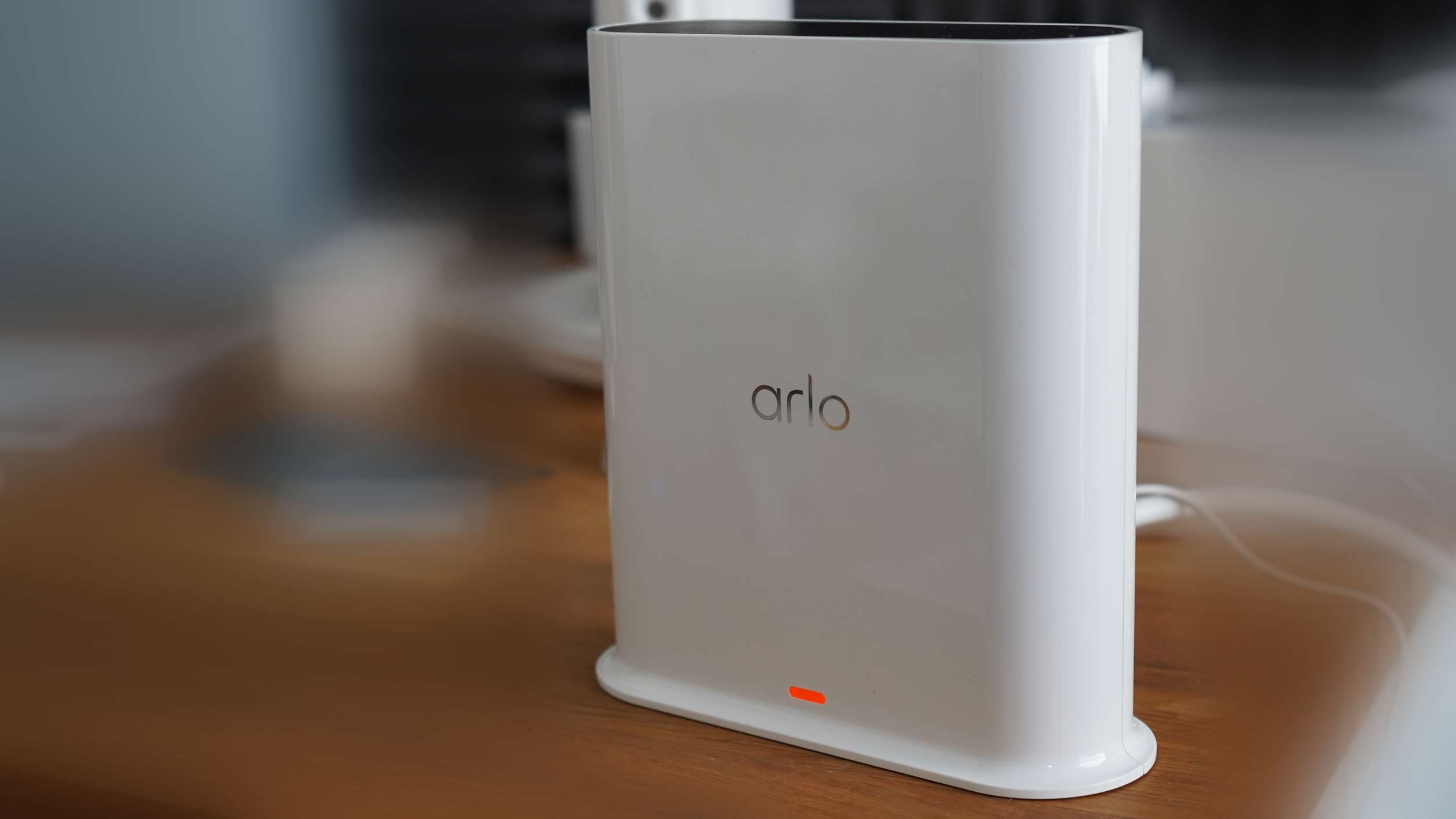
The kit also includes a hub that needs to be connected via Ethernet cable (included) to your router. It’s elegant enough, but apparently shouldn’t be too near the router for the sake of the wi-fi. (For a much larger home you’d need additional hubs.)
Setup requires the gentle guidance of the Arlo app, though subsequent basic operations (viewing feeds as well as arming or disarming the system) can also be achieved using your preferred smart home assistant.
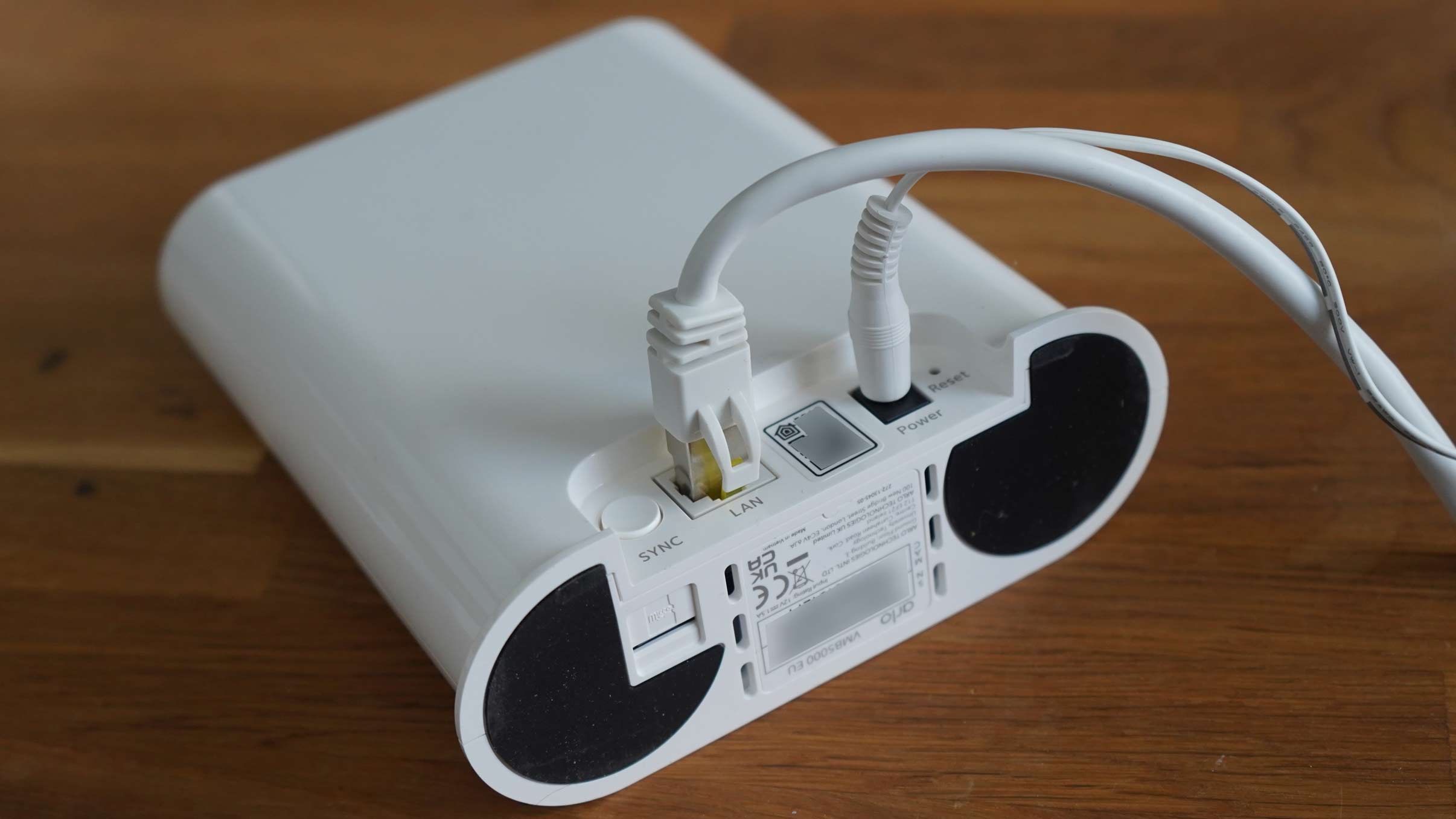
Performance
The video quality of the cameras is excellent; it’s easy to see the advantage of 4K. We tested in the least battery-efficient high-quality mode, and it was enough to make us think we wouldn’t mind charging more often. Admittedly we might have appreciated the bigger batteries seen in Arlo’s floodlight, but that makes for a bigger camera.
Latency between detection and beginning to capture was OK at a couple of seconds, though the app takes longer – about 5 seconds – to begin a live feed, which might make initiating two-way chats with visitors (welcome or otherwise) tiresome.
Sound quality is good though, and it is also impressive how much light the small LED can provide if you opt for color night vision (it’ll often save fumbling for your phone’s torch if you pop into the garden).
Especially useful in the app is the per-camera sensitivity option, as well as scheduling and geofencing to switch on automatically as you leave home. We’d disable the Auto Zoom & Tracking though – it’s digital zoom and risks losing important data as the subject moves.
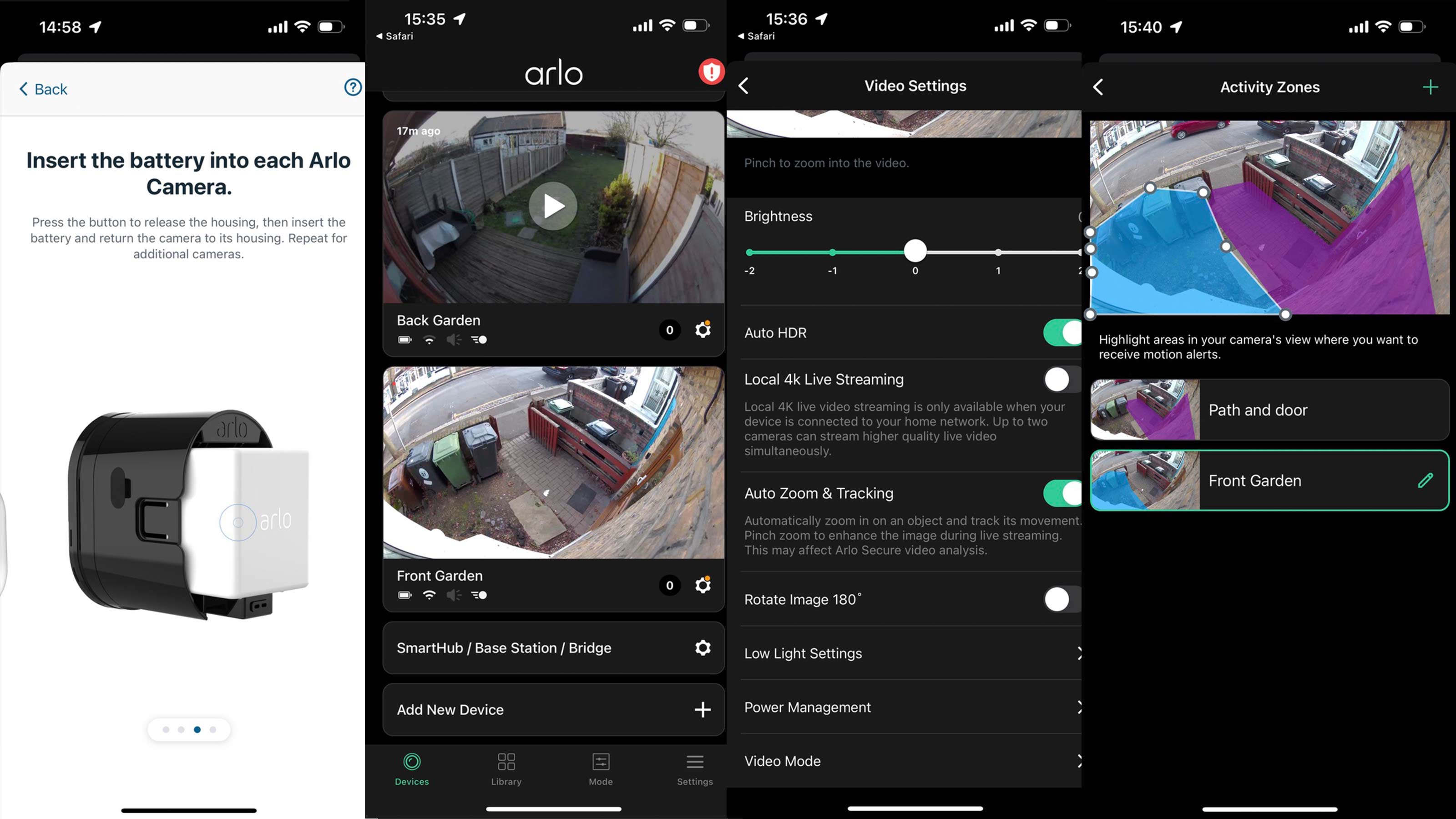
Verdict
We’ve tested Arlo’s cameras in the past, so the gorgeous industrial design didn’t come as a surprise. We like it because it’s even possible to charge wirelessly, without moving the camera at all – all you need is a relatively meaty power-brick that can be held near to the camera for the duration.
We like the hub having a MicroSD socket for local storage (though no USB as on previous Arlo hubs), the range seems good, and it’s nice not to flood your own wi-fi network.
Something which was a bit of a surprise was the mounts; we’ve seen both before but it is strange to get just one of each in the box. We reasoned the tougher screw one would be used out front on our test site, but some might want all tough or all easily re-positioned magnetic. One of each seems tight-fisted given the cost of entry.
As a system, though, this is a great set – easy to install and use, with quality well beyond expectations and spotlights serving adequately for deterrent.
Find more of the best cameras for your home and garden with the best outdoor security cameras, the best indoor security cameras, the best IP cameras, and the best cheap security cameras.

With over 20 years of expertise as a tech journalist, Adam brings a wealth of knowledge across a vast number of product categories, including timelapse cameras, home security cameras, NVR cameras, photography books, webcams, 3D printers and 3D scanners, borescopes, radar detectors… and, above all, drones.
Adam is our resident expert on all aspects of camera drones and drone photography, from buying guides on the best choices for aerial photographers of all ability levels to the latest rules and regulations on piloting drones.
He is the author of a number of books including The Complete Guide to Drones, The Smart Smart Home Handbook, 101 Tips for DSLR Video and The Drone Pilot's Handbook.

